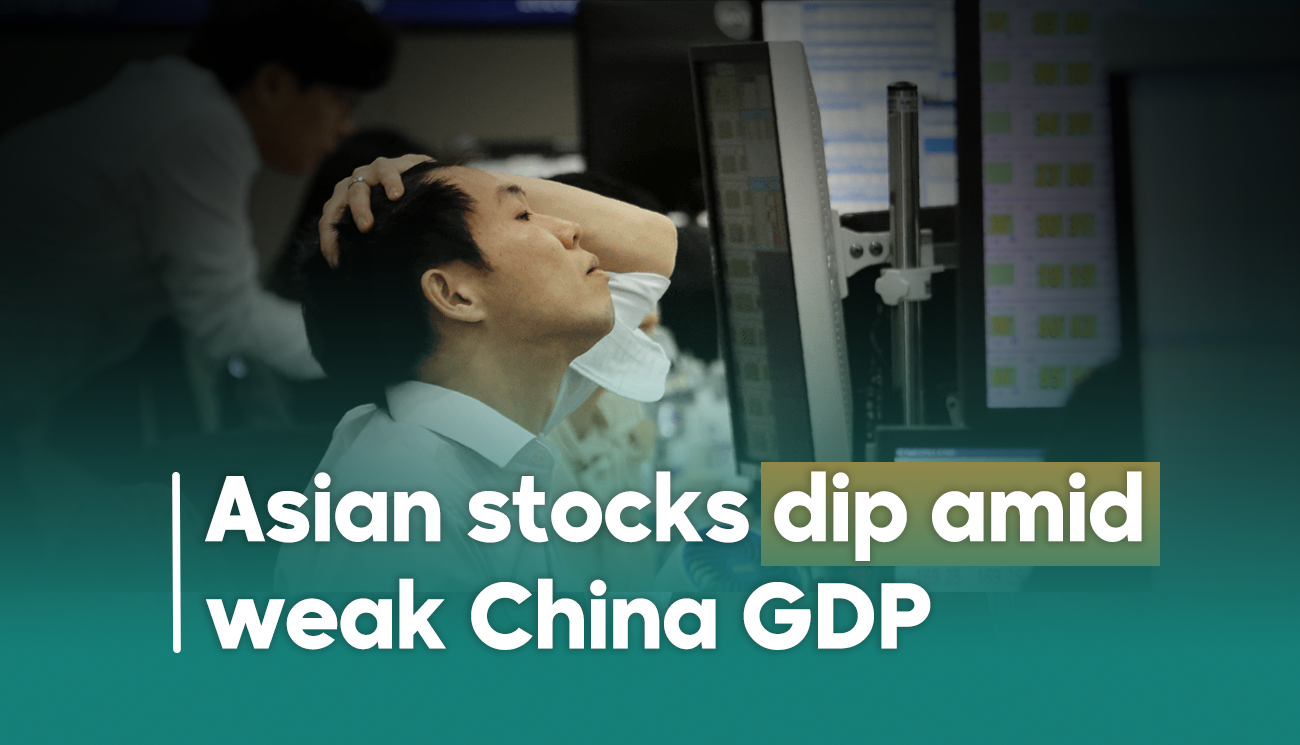Most Asian stocks fell on Monday after disappointing economic growth figures from China, and markets faced a drop in trading volumes due to the Japanese market holiday.
However, losses in most Asian markets were limited thanks to Wall Street gains on Friday, where US stock indices approached record highs amid growing optimism about interest rate cuts.
The Shanghai and Shenzhen CSI 300 and Shanghai Composite indices in China were stable in volatile trading, while the Hang Seng index in Hong Kong saw losses of 1.1%.
China’s GDP grew by a less-than-expected 4.7% year-on-year in the second quarter due to weak consumer spending and demand. This trend was largely offset by improvements in industrial production and manufacturing activity.
Retail sales data reinforced this concept, as concerns about slowing economic growth, rising unemployment rates, and the declining real estate market led Chinese consumers to further reduce spending.
Attention is now focused on the third plenary session of the Chinese Communist Party, which is set to begin later on Monday. This event, a meeting of senior Chinese officials, will be closely watched for more signals on stimulus.
Concerns about China affected sentiment towards Asia, and in Australia, the ASX 200 outperformed other indices and reached record highs, with gains mainly driven by heavyweight banks and mining stocks.
Despite disappointing Australian economic signals, local stocks benefited from investors shifting to more economically sensitive sectors amid prospects of interest rate cuts in the coming months. This trend was observed across various global markets.
Additionally, the relatively low weight of the technology sector in Australia’s stock markets made the country appear more attractive, as investors moved away from technology after the hype around artificial intelligence caused a massive surge in the sector’s valuations.





